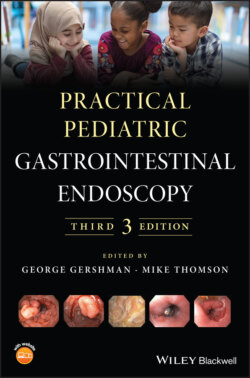Читать книгу Practical Pediatric Gastrointestinal Endoscopy - Группа авторов - Страница 51
Endoscopy skill acquisition
ОглавлениеWith regard to learning to perform procedures such as endoscopy, skill acquisition has been described by Fitts and Posner [1] as a sequential process involving three major phases: cognitive, associative, and autonomous. In the cognitive stage, a learner develops an initial mental understanding of the procedure through instructor explanation and demonstration. Performance during this stage is often erratic and error filled, and feedback should focus on correct procedural technique and identifying common errors. Subsequently, in the associative phase, the learner translates knowledge acquired during the cognitive stage into appropriate motor behaviors, tasks are gradually executed more efficiently, and there are fewer errors and interruptions. Feedback during the cognitive stage should aim to help learners self‐identify errors and their associated corrective actions [2]. Finally, with ongoing practice and feedback, the learner transitions to the autonomous stage, where motor performance becomes automated such that the skills are performed without significant cognitive or conscious awareness.
